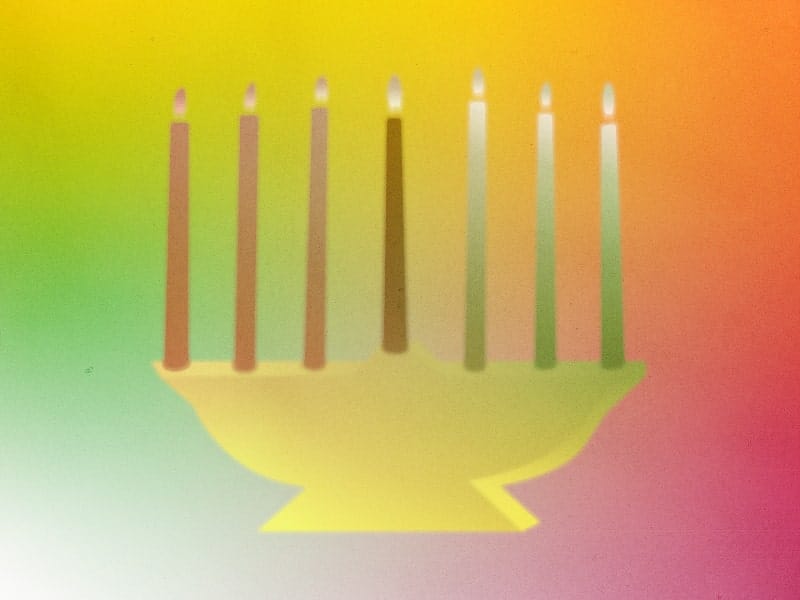Kwanzaa
This annual holiday celebrates family and community by drawing on several Southern African first-fruits celebrations.

Renee Harleston
Reviewer URLDate: December 26 - January 1
Pronunciation: kwaan-zuh
This annual holiday celebrates family and community by drawing on several Southern African first-fruits celebrations.
Origin
Kwanzaa was created and first celebrated in 1966 by Dr. Maulana Karenga, a professor of Africana Studies at California State University. The name Kwanzaa originates from the Swahili word kwanza, which means “first.”
Who observes this holiday
Kwanzaa is primarily observed by African Americans and Afro Caribbeans within the United States.
Traditions
Kwanzaa spans over seven days. Each day of Kwanzaa is dedicated to one of seven affirming principles known as Nguzu Saba. Day one is unity (umoja). Day two reflects on self-determination (kujichagulia). Day three focuses on collective responsibility (ujima). Day four discusses cooperative economics (ujamaa). Day five focuses on purpose (nia). Day six explores creativity (kuumba). Day seven reflects on faith (imani).
During each of the seven days, the family or community comes together to light one of the candles, known as Mishumaa Saba, in the kinara, or candleholder, followed by a discussion of the principle for the day. There are three red candles, three green candles and one black candle. These colors all have meaning—green for the earth, red for struggle and black for the people.
There are also seven symbols of Kwanzaa: the Mishumaa Saba candles; some fruit, vegetables and nuts known as mazao; a straw or cloth mat called mkeka; a candleholder; ears of corn known as vibunzi; gifts called zawadi; and a communal cup signifying unity called Kikombe Cha Umoja.
On December 31, families gather together for a feast called the karamu. Some participants wear traditional African clothing during the celebration.
What to say
“Habari Gani,” a Swahili greeting that translates to “What’s the news?” is often recited during Kwanzaa. “Happy Kwanzaa” is also an appropriate greeting.